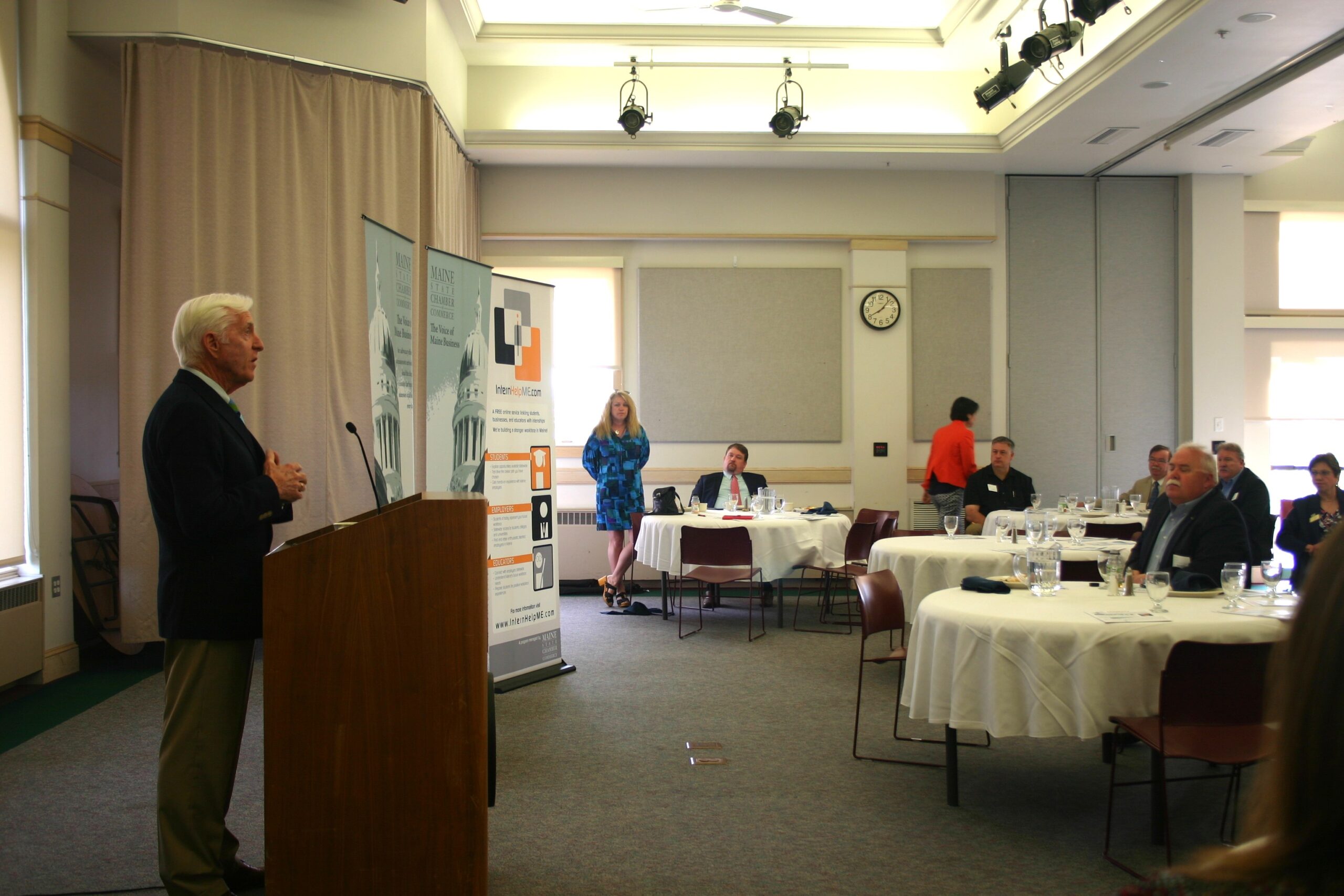
PRESQUE ISLE, Maine — A ballot initiative that asks voters to approve universal in-home care for Maine residents over 60 or people with disabilities would do “more harm than good” for the population that it intends to serve, according to Dana Connors, president of the Maine State Chamber of Commerce.
LD 1864 “An Act to Establish Universal Home Care for Seniors and Persons with Disabilities” will be placed before voters in November and has been proposed by the Maine People’s Alliance. The alliance’s proposal seeks a 3.8 percent tax on incomes above $128,400 to pay for the home-care services.
But the initiative also has many flaws, including unclear language regarding eligibility requirements and a negative effect on Maine’s tax rates, Connors said, during a Maine State Chamber of Commerce regional breakfast meeting at the University of Maine at Presque Isle this past Wednesday.
“The language in this initiative says that anyone living in Maine 60 and over or with disabilities would be eligible for universal home care,” Connors said. “What we don’t know is whether people who only live in Maine during part of the year, such as the summer, would qualify.”
Connors stated that the Maine People’s Alliance has funded its referendum through wealthy, out-of-state donations and would allow members of a private board to elect their own officials to administer the home-care program even though the power to elect and appoint such individuals lies with the state.
The initiative also would require the Maine Department of Health and Human Services to release personal information about home-care patients such as healthcare records and contact information to the elected board, a move that Connors said would violate the Health Insurance Portability and Accountability Act of 1996 that protects patient privacy.
The private patient information would go to “constituency associations,” which are agencies or personal caregivers who want to advocate for the board in hopes of joining the association and participating in board elections.
“The Chamber and I have spoken with Daniel Wathen, former Maine Supreme Judicial Court Chief Justice, and he said that this proposal is ‘unconstitutional,’” Connors said. “It would allow a private board to carry out this program themselves without any guidelines or accountability to the population that they claim to serve. They’re only out to serve themselves.”
He also noted that the 3.8 percent increase in taxes on incomes of $128,400 only includes a household’s gross income, which does not consider yearly tax deductions. This tax would not help Maine attract younger professionals and business owners, Connors said..
The Maine State Chamber of Commerce plans to launch an official campaign against LD 1864 in the coming months and Connors encouraged those at the breakfast meeting to contact their state lawmakers and tell them not to support a bill that would negatively impact the elderly and disabled, including in Aroostook County.
“We’re concerned that the initiative would create expenses that the state cannot afford,” Connors said.
The regional breakfast meeting at UMPI was the fourth such gathering that the state Chamber of Commerce has held throughout Maine this year to address economic, workforce, environmental and educational issues that affect Maine communities and to advance the chambers’ efforts to advocate for legislative solutions at the state government level.
Linda Caprara, senior government relations specialist in taxation and director of grassroots advocacy for the state chamber, said that despite partisan tension in the House of Representatives that resulted in lawmakers adjourning in April without voting on many bills they had hoped to pass, the chamber remains hopeful that a Republican version of a tax conformity bill they support will reach bipartisan compromise.
LD 1655, “An Act to Update References to the United State Internal Revenue Code of 1986 contained in the Maine Revised Statutes,” would conform Maine’s income tax laws to the new federal code. Caprara stated that if Maine conforms, businesses would receive a 100-percent bonus depreciation on assets that they could reinvest in employees and equipment. The chamber does not support a Democratic version of the legislation that did not include the depreciation.
“The House tried to compromise on this issue in April, but then they adjourned,” Caprara said. “We continue to support the Republican proposal in support of Maine small-business owners.”




